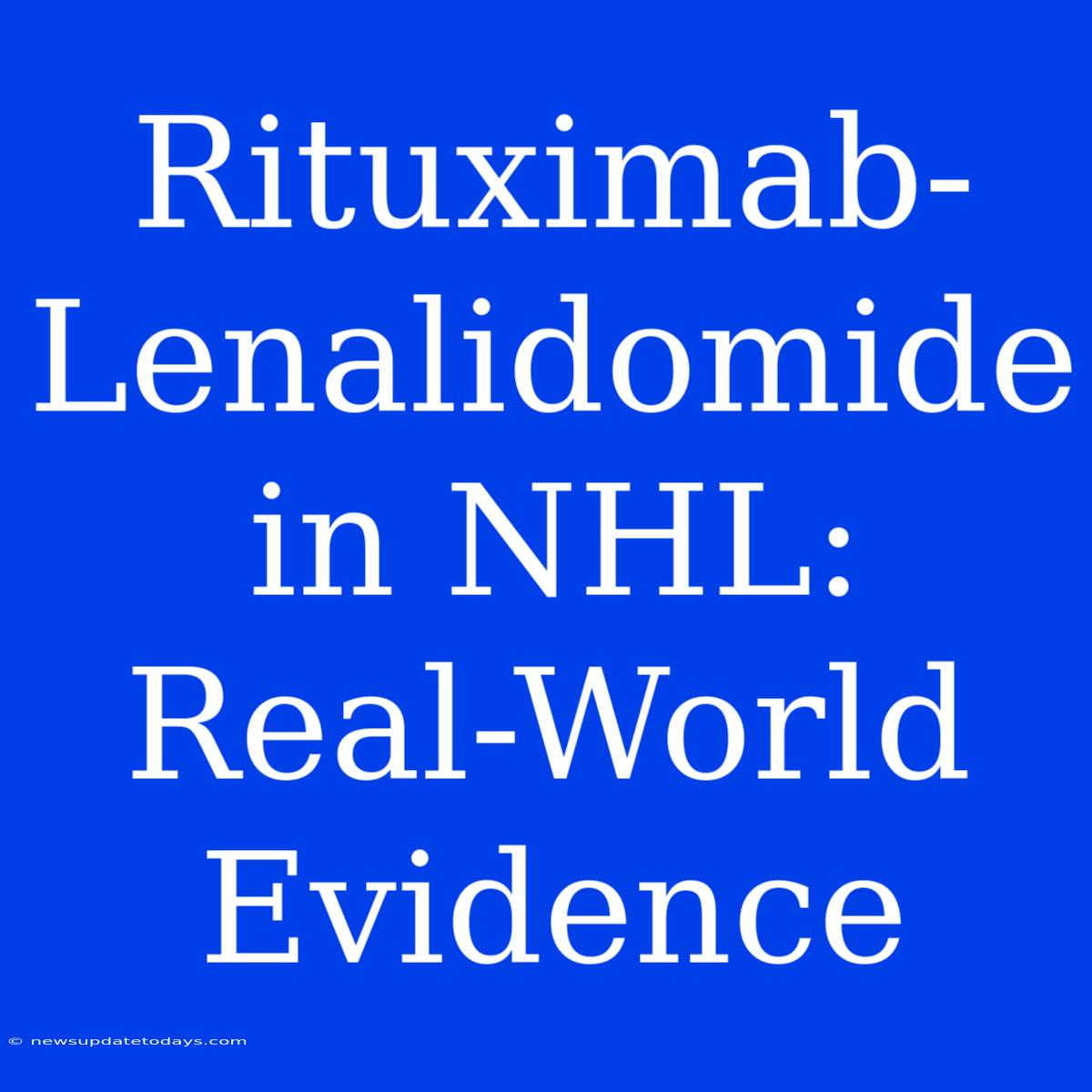Rituximab-Lenalidomide in NHL: Real-World Evidence Unveiled
Rituximab-lenalidomide combination therapy is increasingly used in Non-Hodgkin Lymphoma (NHL), offering a promising treatment strategy. However, much of the initial data comes from controlled clinical trials. This article delves into the real-world effectiveness and safety of this regimen, analyzing findings from observational studies and registries to provide a comprehensive overview.
Understanding the Rituximab-Lenalidomide Combination
Rituximab, a monoclonal antibody targeting CD20 on B-cells, has revolutionized NHL treatment. Lenalidomide, an immunomodulatory drug, enhances the immune response and directly inhibits tumor cell growth. Combining these agents leverages their synergistic effects for improved outcomes. This combination is particularly relevant for specific NHL subtypes and patient populations, offering potential benefits where traditional regimens might fall short.
Real-World Evidence: A Deeper Dive
Several real-world studies have evaluated the efficacy and safety profile of rituximab-lenalidomide. These studies, often involving larger and more diverse patient cohorts compared to clinical trials, provide valuable insights into the treatment's performance in routine clinical settings.
Key Findings from Observational Studies:
-
Response Rates: Real-world studies generally report response rates comparable to those observed in clinical trials, indicating the regimen's consistent performance across various settings. However, variations may exist depending on patient characteristics and treatment protocols.
-
Progression-Free Survival (PFS): Observational data provides valuable information on PFS in real-world populations, reflecting the long-term effectiveness of the combination therapy. Analyzing these data points helps in understanding the long-term implications of this treatment approach.
-
Overall Survival (OS): While OS data is crucial, its interpretation in real-world studies can be complex due to the presence of confounding factors. Nevertheless, these studies contribute to a broader understanding of the impact of rituximab-lenalidomide on patient longevity.
-
Toxicity Profile: Real-world data offers insights into the toxicity profile of rituximab-lenalidomide in diverse patient populations. Understanding the incidence and management of adverse events is crucial for optimizing treatment strategies and improving patient safety. Particular attention is often paid to hematological toxicities, such as neutropenia and thrombocytopenia.
-
Specific Subtypes: Some real-world studies focus on specific NHL subtypes to understand the efficacy and safety of rituximab-lenalidomide in these populations. This targeted approach helps refine treatment guidelines and optimize care for patients with specific disease characteristics.
Challenges and Limitations of Real-World Evidence
While valuable, real-world data presents several limitations. These include:
- Heterogeneity of treatment protocols: Variations in treatment administration and patient selection can impact the comparability of results across studies.
- Lack of standardized data collection: Inconsistent data collection methods can hinder the accuracy and reliability of the findings.
- Potential for selection bias: Patient populations in real-world studies might not perfectly reflect the broader NHL population.
Conclusion: Bridging the Gap Between Clinical Trials and Clinical Practice
Real-world evidence on rituximab-lenalidomide in NHL plays a crucial role in bridging the gap between clinical trial findings and clinical practice. By analyzing data from observational studies and registries, clinicians can gain a more nuanced understanding of the treatment's efficacy, safety, and applicability in diverse patient populations. Further research and standardized data collection methods are needed to strengthen the evidence base and optimize the use of this promising combination therapy in the fight against NHL. Future studies will continue to refine our understanding of this valuable treatment approach and help inform personalized treatment strategies for individual patients.

